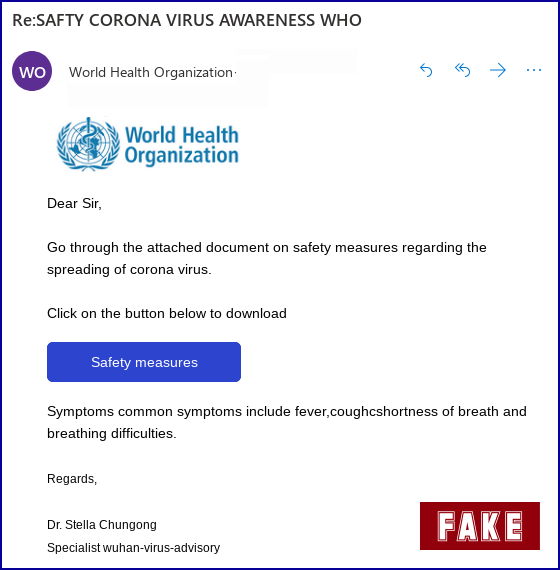Posted January 11, 2022 in Crawford, Rushville, Overton, Merriman, Martin, Harrison, Cody, Clatonia, Blue Springs, Thedford, Chadron, Cozad, Hay Springs, Rapid City, Elwood, Valentine, Beatrice, Lincoln, Sidney
Beware of Coronavirus Phishing Scams

If you received an email from the Centers for Disease Control and Prevention or the World Health Organization about the coronavirus outbreak, would you read it? Would you click on a link or open an attachment? Cybercriminals are counting on it.
The coronavirus outbreak is a dream come true for criminals who will use it as basis for email attacks designed to snag personal information, steal money and infect computers with malware. Malicious email linked to the coronavirus first appeared in early February, making it one of the first big phishing campaigns of the year. Cybercriminals hope to exploit your fears with phishing emails designed to steal money, snag personal information and infect computers.
How to protect yourself from coronavirus scams
You need to be skeptical of any email that asks you to click on a link or open an attachment — even when the email seems legitimate.
In most cases, you can probably get the information you need by typing in the website address yourself. For the latest on the coronavirus outbreak go directly to the Centers for Disease Control (CDC) or World Health Organization (WHO) websites.
Following are a few reminders:
- Don’t be taken in by the sender’s name. Scammers can put any name they like in the “from” field.
- Look out for spelling and grammatical errors. Not all criminals make mistakes, but many do. Take extra time to review messages for telltale signs that they’re fraudulent.
- Check the URL before you type it in or click a link. If the website you land on doesn’t look right, steer clear. Do your own research and make your own choice about where to look.
- Never enter data that a website shouldn’t be asking for. A site that’s open to the public, such as the CDC or WHO, will never ask for your login credentials.
As always, if you are not sure if an email is legitimate, please contact your local branch or 877-747-3139 and they can check it for you.